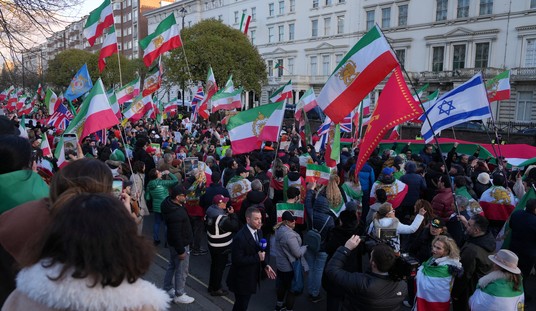First Things journal published an article recently titled “The Islamic Case for Religious Liberty.” It was written by a Muslim scholar from the University of Melbourne in Australia. Abdullah Saeed’s article is an eloquent expression of the need for greater openness within Islam. He concedes that the strong case he makes for religious liberty is not observed in Muslim majority countries today.
Prof. Saeed is right about that. Freedom House, the respected U.S.-based organization that monitors the status of freedom throughout the world, shows only one country in the entire Mideast that is “free.” That tiny sliver of land is called Israel. Not one Muslim majority country in the Mideast or North Africa is listed as free.
We who live in freedom have a right to ask pointed questions about the broad swaths of “not free” regions. Of the 192 nations “represented” in the UN General Assembly, most are not free. If the PLO is given a voting membership in the UN, it will join dozens of other dictatorial regimes whose votes outweigh the free states’ delegates who vote there.
For many in the Muslim majority countries, tolerance is about the best they can hope for. Simply to be allowed to worship without fearing the knock at the door is considered an improvement. Don’t try this in Saudi Arabia. Or Iran.
What’s wrong with tolerance? Prof. Abdulla Saeed’s evident goodwill should be respected. He holds an endowed chair at his university that is supported by the Sultan of Oman. Oman is listed as “not free” by Freedom House. The situation in Oman is probably one of the better ones in the Arab Middle East. Still, a father who converts there, while he may escape murder, loses any paternal rights over his children. This, in a strongly patriarchal, family-oriented culture, is a powerful deterrent to conversion.
Recommended
The U.S. State Department’s Religious Freedom Report portrays Oman in these terms. MERA is the Omani agency to whom you must report yourself as a religious dissenter.
The government, through MERA, continued to publish Al Tasamoh (Tolerance), a periodical devoted to broadening dialogue within Islam and promoting respectful discussion of differences with other faiths and cultures that includes articles by Christian, Muslim, Jewish, and Hindu religious scholars. MERA produced a documentary entitled ‘Religious Tolerance in Oman,’ showcasing the breadth of religious experience in the country by showing how, in its history and to this day, Muslims, Christians, Hindus, and other religious communities have coexisted peacefully.
Why should anyone object to “tolerance?” James Madison did. When he was just 25, Madison persuaded patriot leader George Mason to change the words of the Virginia Declaration of Rights from “fullest tolerance” of religion to “free exercise of religion.”
Thomas Jefferson used Mason’s Virginia document as a basis for our own Declaration of Independence.
Madison knew that when you grant “tolerance” to minority religious groups, you are presuming that they exercise their rights only with your generous forbearance.
The rights of man, John F. Kennedy memorably said, come not from the generosity of the state, but from the hand of God. First among these rights is the right to worship God as our consciences dictate. That’s why Jefferson and Madison cooperated on the 1786 Virginia Statute for Religious Freedom. This document can rightly be called the Magna Carta of religious freedom. It set a high standard for the world. It’s the chief reason the Founders called the American system of government Novus Ordo Seclorum, the new order of the ages.
George Washington also took issue with “tolerance.” In his historic Letter to the Hebrew Congregation at Newport, President Washington personally delivered his reply to the leaders of this famous Rhode Island synagogue.
It is now no more that toleration is spoken of as if it were the indulgence of one class of people that another enjoyed the exercise of their inherent natural rights, for, happily, the Government of the United States, which gives to bigotry no sanction, to persecution no assistance, requires only that they who live under its protection should demean themselves as good citizens in giving it on all occasions their effectual support.
This was the first time in human history that any nation’s ruler had addressed the Jews as equal fellow citizens. It is yet another reason for what we call “American Exceptionalism.”
We should welcome every small advance toward religious liberty in the Muslim lands. But we should be alert to the inherent problems with mere “tolerance.” And we should reject out of hand the “repugnancy clauses” that our State Department included in the American-supervised constitutions of Iraq and Afghanistan.
These offensive clauses state that notwithstanding anything else in this constitution, nothing shall be done by this government that is repugnant to Islam. Well, who decides what is repugnant to Islam? The mullahs do. Which mullahs? The mullahs with more guns, of course. These repugnancy clauses not only swallow up any other guarantees in those wholly defective constitutions, they guarantee unending sectarian strife. These deeply flawed documents are what assure us that there will be no “Iraqi freedom” at the end of eight years of Operation Iraqi Freedom and no enduring freedom in Afghanistan ever. Both nations are listed by Freedom House as “not free.” Nor, following these wholly defective “constitutions” will they ever be set free.

























Join the conversation as a VIP Member